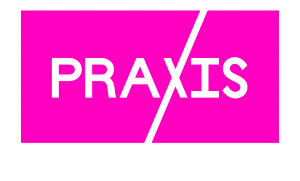
The Campaign for Living Wage is a movement advocating for artists to be paid a wage that allows them to afford a socially acceptable minimum standard of living. Unlike the National Minimum Wage, the Living Wage is based on social consensus and is currently valued at 13.85 euros per hour in Ireland. However, this rate does not account for additional costs such as childcare, health issues, or art production expenses, making it the bare minimum that artists should be asking for in exchange for their labour.
The discussion around the campaign aims has raised several key issues, including how to define what is being paid for, different definitions of working (such as art research), what to include or exclude from the base rate, and whether hourly or daily rates are more appropriate. Comparisons have been made to other skilled freelancers, such as coders and graphic designers, although some argue that artists’ work involves more creativity and invention from scratch.
The concept of profit, traditionally seen as a dirty word in art circles, has been highlighted as essential for artists to live above subsistence level. Artists are essentially entrepreneurs, often working in the gig economy and moving from one commission or contract to another with gaps in between. Therefore, calculating rates should take into account the artist’s annual income goal and expenses, and consider profit as a legitimate component of the wage.
The Campaign for Living Wage in Ireland involves various arts representative organizations, including The Writers Union, Match in the Dark, NCFA, VAI, and Theatre Ireland, among others. Similar movements are taking place globally, led by organizations such as A.N UK, CARFAC in Canada, and The Scottish Artists Union. Business support organizations like LEO also provide workshops on how to calculate pricing and income for entrepreneurs and sole traders.
In conclusion, the Campaign for Living Wage advocates for artists to be paid a wage that covers their basic needs, accounts for additional costs, and allows for a reasonable profit. Artists should be considered as entrepreneurs and freelancers, and their rates should be calculated based on their annual income goal, expenses, and the realities of working in the gig economy. Achieving a living wage for artists would ensure that they can afford a socially acceptable minimum standard of living and thrive in their creative endeavours.
The economic context in which the discussion about fair pay for artists is happening is multifaceted. There are emerging ideas and movements challenging the traditional focus on profit at all costs, including degrowth, Universal Basic Income (UBI), environmental concerns, and well-being. Degrowth is a political and economic movement advocating for reducing economic activity and consumption to achieve sustainability, social justice, and improved quality of life. Well-being is contrasted with Gross Domestic Product (GDP) as a measure of societal progress, focusing on factors such as health, education, and overall life satisfaction. UBI is a proposal for regular unconditional payments to all citizens or residents to provide a basic level of economic security, with proponents arguing that it could reduce poverty and inequality while promoting economic growth and innovation.
Enforcement of fair pay rates for artists would require robust reporting systems, clear guidelines for reporting misconduct, mechanisms for investigation and addressing complaints, and penalties for non-compliance. Solid contracts with clear provisions on payment terms and ownership of intellectual property are crucial for protecting artists’ rights. Persuasion to adopt fair pay rates would involve engaging with various organizations, policy makers, and venues, and seeking public commitments to paying artists properly. Praxis has been making connections with relevant organizations and holding discussions with stakeholders such as the Arts Council of Ireland. Research and outreach are ongoing in preparation for launching the campaign in Autumn 2023.
The next steps for Praxis would involve holding think-in workshops to develop the exact figure for artists’ pay and the rationale behind it, and then promoting this to necessary stakeholders to gain commitments to upholding the rate. The goal is to mainstream the concept of fair pay for artists, similar to equality and diversity standards, and create a more equitable and sustainable arts industry for all involved.

